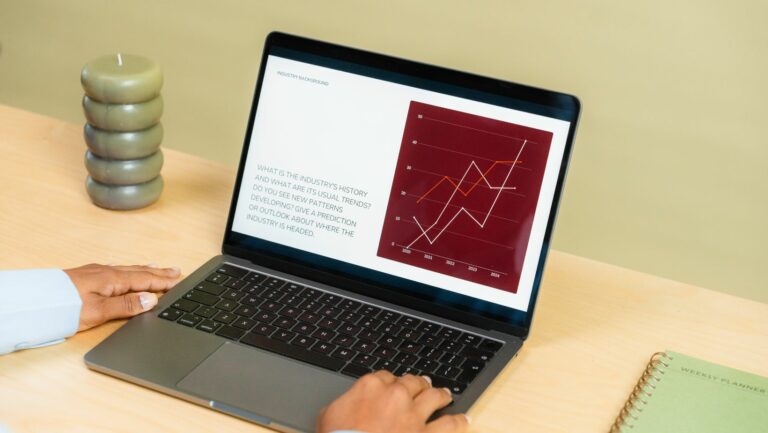In today’s fast-paced world, healthcare is getting a high-tech makeover, and mobile apps are leading the charge. Imagine having a doctor in your pocket—no waiting rooms, no awkward small talk, just instant access to health advice. That’s the magic of healthcare mobile app development services. They’re transforming how patients interact with providers, making it easier to book appointments and track health metrics, all while keeping those pesky paper charts in the past.
Healthcare Mobile App Development Services
Healthcare mobile app development services focus on creating applications tailored for the healthcare sector. These services encompass various features aimed at enhancing patient engagement and streamlining administrative processes.
Patient-centered design approaches ensure apps meet user needs while adhering to regulations like HIPAA. Developers prioritize functionality, creating seamless interfaces that facilitate easy navigation for both patients and healthcare providers.
Key services include telemedicine solutions, which allow virtual consultations. Appointment scheduling features also simplify booking processes, reducing no-show rates and improving clinic efficiency. Applications supporting medication reminders enhance patient adherence to prescribed treatments.
Data integration plays a critical role in mobile app development, allowing real-time access to electronic health records. Such integration helps healthcare professionals make informed decisions based on up-to-date patient information.
Security remains a top priority in developing these apps. Developers implement measures like encryption and secure authentication methods to protect sensitive data.
In terms of market trends, the rising demand for mHealth apps illustrates their growing importance in healthcare delivery. These trends are driven by consumers seeking convenient health management solutions.
Developers in this sector use agile methodologies to adapt to changing project requirements quickly. Continuous testing and updates ensure that applications remain functional and relevant amid evolving technology.
Healthcare organizations increasingly recognize the value of mobile apps in enhancing patient outcomes. By investing in these services, they position themselves to meet the demands of modern healthcare consumers.
Importance of Healthcare Mobile Apps

Healthcare mobile apps play a pivotal role in transforming patient experiences and enhancing service delivery in the medical field. These applications offer innovative solutions that align with modern healthcare demands.
Enhancing Patient Engagement
Engagement increases as mobile apps provide tools for personalized health management. Through features like secure messaging, patients can easily communicate with healthcare providers, improving transparency. Reminders for medication and appointments foster adherence to treatment plans. Users benefit from educational resources that empower them to make informed health decisions. Moreover, feedback systems within apps allow patients to express their needs and concerns, further enhancing satisfaction levels.
Improving Healthcare Accessibility
Accessibility improves significantly with healthcare mobile apps. Individuals can consult with healthcare professionals from the comfort of their homes through telemedicine solutions. Geographical barriers diminish, allowing rural and underserved populations to receive quality care. Patients can book appointments instantly, reducing wait times and no-show rates. Integration with electronic health records ensures real-time information availability, enabling informed decision-making for both patients and providers. Overall, these solutions create a more inclusive environment for healthcare access.
Key Features of Effective Healthcare Mobile Apps
Effective healthcare mobile apps incorporate several essential features to enhance usability and security. Focus on user-centered design ensures that patients engage easily with the functionalities of the app.
User-Friendly Interfaces
User-friendly interfaces simplify navigation for patients, making it easy to access critical features like appointment scheduling and health tracking. Intuitive layouts guide users through the app quickly, reducing learning curves and improving satisfaction. Clear visual elements combined with straightforward instructions facilitate a smoother experience. Feedback mechanisms allow users to report issues or suggest improvements, creating a more adaptable and responsive app environment.
Data Security and Privacy
Data security and privacy are paramount in healthcare mobile apps due to sensitive health information involved. Strong encryption methods protect user data from unauthorized access, maintaining confidentiality. Implementing secure authentication processes, such as two-factor authentication, adds an extra layer of security. Regular updates help address new vulnerabilities, ensuring that the app remains compliant with regulations like HIPAA. Transparent privacy policies increase user trust by clearly outlining how personal information is handled and shared.
Process of Healthcare Mobile App Development
The process of healthcare mobile app development involves several critical stages that ensure the final product meets both user needs and regulatory standards.
Idea Validation and Market Research
Conducting thorough idea validation enhances the app’s potential for success. Market research identifies target demographics and evaluates competitor offerings. Gathering user feedback through surveys and interviews informs feature prioritization and design. Analyzing trends in healthcare technology ensures alignment with user expectations. Insights derived from this phase guide the development process, refining concepts into practical solutions.
Design and Development Phases
Initiating the design phase involves creating intuitive user interfaces that enhance usability. Prototyping presents opportunities for stakeholder feedback and iterative improvements. Development follows, implementing features like telemedicine solutions and appointment scheduling. Collaboration between designers and developers ensures seamless functionality and aesthetic appeal. Utilizing agile methodologies during this phase allows for flexibility in adapting to changes and user feedback effectively.
Testing and Quality Assurance
Executing rigorous testing guarantees the app performs reliably under various conditions. Quality assurance includes functional, usability, and security testing to identify and rectify issues. Engaging real users during beta testing reveals practical insights that inform final adjustments. Ensuring compliance with regulations like HIPAA remains a top priority throughout the testing phase. Continuous monitoring after launch addresses potential issues, enhancing overall user experience.
Choosing the Right Development Partner
Selecting an ideal development partner is crucial for successful healthcare mobile app creation. Evaluate expertise in healthcare-specific applications, as experience significantly impacts functionality and compliance. Review the partner’s portfolio to assess previous work quality and suitability for healthcare projects.
Consider communication style and responsiveness. A responsive partner fosters collaboration, ensuring project goals and expectations align. Discuss methods for project management, such as agile methodologies, which allow for flexibility during development.
Check for adherence to compliance standards, particularly HIPAA regulations. Compliance protects sensitive patient data, enhancing trust in the mobile application. Assess the partner’s understanding of privacy laws and industry requirements to ensure adherence throughout the development process.
Inquire about integration capabilities with existing systems. An ideal partner ensures seamless data sharing with electronic health records, enabling real-time access for healthcare professionals. Prioritize partners that provide strong backend support to facilitate integration efforts.
Examine customer support services offered by potential partners. Post-launch support is essential for addressing potential issues and ensuring operation continuity. Investments in training can enhance the usability of apps for healthcare providers and patients alike.
Assess the scalability of the development partner’s solutions. Healthcare needs can evolve quickly, necessitating updates and new features. A scalable solution allows for future growth without significant redevelopment efforts.
Lastly, seek references and testimonials from previous clients. Positive feedback provides insights into client satisfaction and the partner’s reliability. Prioritize partners that demonstrate a solid reputation in the healthcare app development industry.
Conclusion
Healthcare mobile app development services are reshaping the way patients interact with providers. By prioritizing user experience and regulatory compliance, these apps enhance engagement and streamline processes. With features like telemedicine and real-time data access, they offer unparalleled convenience and accessibility.
As the demand for innovative health solutions continues to rise, partnering with the right development team becomes crucial. Their expertise ensures that apps not only meet user needs but also adhere to industry standards. This commitment to quality and security ultimately leads to improved patient outcomes and a more efficient healthcare system. Embracing this technology is essential for any organization looking to thrive in today’s fast-evolving landscape.




